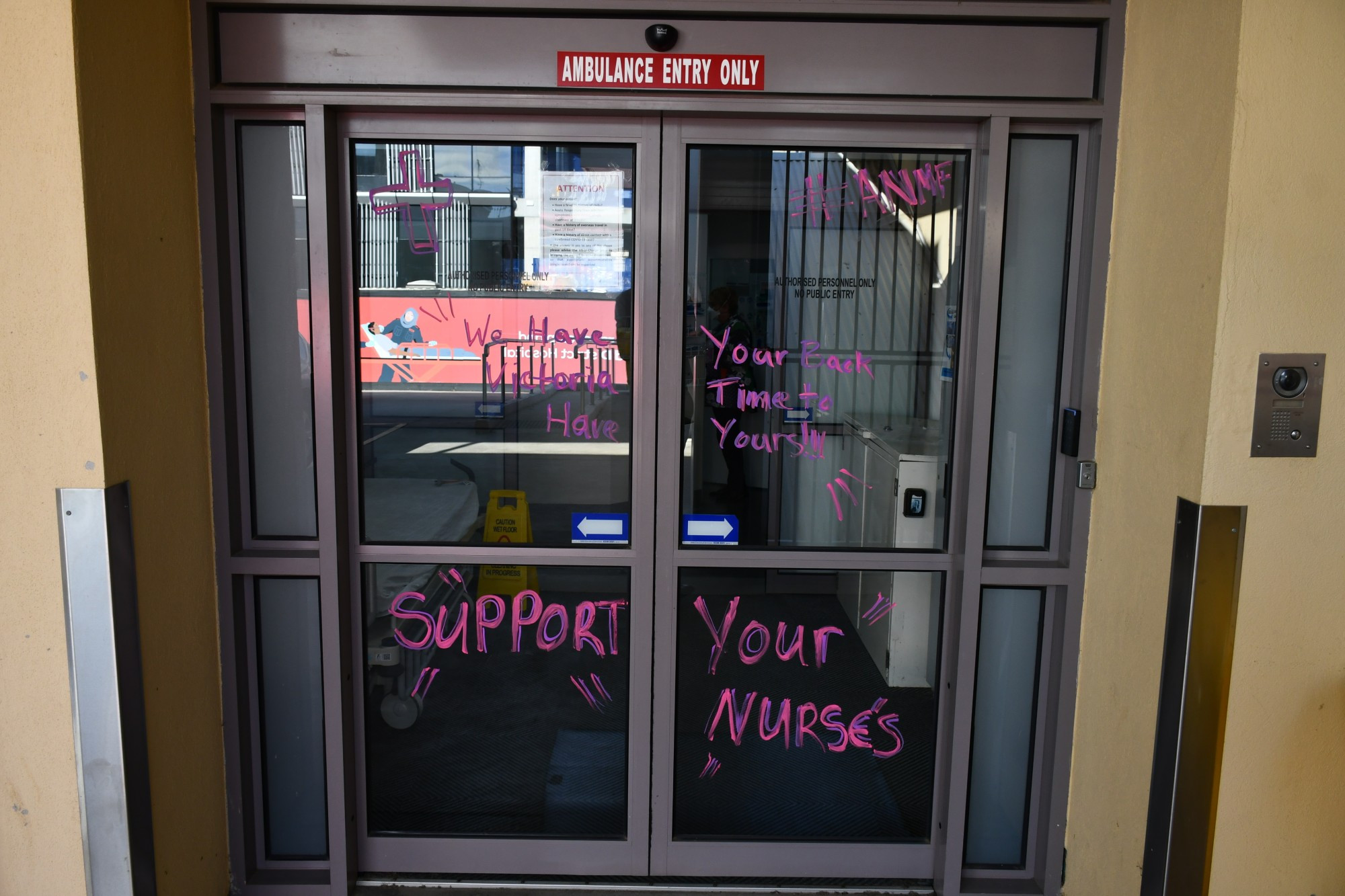General News
27 May, 2024
Local nurses demand better conditions and wage increases as industrial action continues
It’s time for our work to be valued, is the call from nurses and midwives across Victoria, who voted down a new pay deal struck by their union with the State Government last week. Workers started industrial action for better pay and conditions...

It’s time for our work to be valued, is the call from nurses and midwives across Victoria, who voted down a new pay deal struck by their union with the State Government last week.
Workers started industrial action for better pay and conditions earlier this year, and the latest deal was offered when that action escalated with the closure of one in four hospital beds and the cancellation of some elective surgeries on May 17.
That action was suspended after the Australian Nursing and Midwifery Federation agreed to an in-principal deal with the State Government, which according to Victorian branch secretary Lisa Fitzpatrick could have included a pay rise of 18 to 23 percent over four years.
However, last month the deal was voted down by 3000 nurses and midwives in a shock decision.
Workers had previously rejected an offer of a three percent pay increase over four years and a one-off payment of $1500 for full time staff, with next steps now uncertain for both sides.
Alongside better pay, nurses and midwives have been calling for better conditions including offering more incentives to keep staff on full time, with many workers becoming casuals due to rostering issues.
It’s a challenge one local nurse understands all too well.
The nurse — who asked not to be named — has worked in the health-care industry for more than 20 years, and said the job is rewarding, but undervalued.
“It’s a good job, it can be so rewarding and so satisfying when you make someone feel better especially when they’re at a really stressful time in their lives,” she said.
“But nurses are undervalued. The health system couldn’t survive without them.
“I see AFL footballers who earn millions of dollars to kick a footy around a field, yet us nurses who are actually saving lives every day, at most we’re paid $50 or $60 an hour.”
The nurse said shift scheduling and compensation in particular need attention.
“A lot of shift work isn’t conducive to having a family. We miss birthdays, Christmas and other special occasions to care for the community,” she said.
“If you’re rostered on for five evening shifts in a row, you miss family dinner those nights. You might see your children for only an hour a day over almost a week.
“Routinely on our rosters we do night shifts, starting at 9 pm and finishing at 7.30 am the next morning — only to be rostered back on at 7 am the following morning. You end up working the majority of your shift on what is considered your day off.
“Routinely nurses are rostered until 9.30 pm, rarely leaving on time due to high demand workloads only to have to be back at 7 am the following morning, and that is not including any travel involved which is common in rural and regional nursing. Fatigue is high level and common in the industry.
“It doesn’t encourage people to stay and I think people are tired, and realising this isn’t their only choice now.”
COVID-19 had a significant impact on nursing, according to the local nurse, who said it’s prompted a change in the values and mindsets of staff.
“COVID was next level. I believe there’s probably a lot of nurses with some degree of PTSD, it was really traumatic,” she said.
“Wearing full protective gear for a whole shift, you were dehydrated and exhausted, doing double shifts and missing breaks because staff were off sick with COVID themselves or their own families at home were affected by it, and the concern of taking infections home to loved ones.
“The flow-on effect has seen a lot of nurses leave the industry or working casual hours so they can choose to spend those special times with their families. Priorities have certainly changed post-COVID.
“These choices leave nurses remaining in the industry working more hours, under more pressure and with less staff.”
While she would’ve been happy to see the State Government’s most recent pay deal accepted, the nurse said it is important to push for incentives.
“I personally did feel what was offered was enough, but I think there’s a real fight to give better incentives, especially for hard-to-fill shifts,” she said.
“And stopping the finishing work at 7 am and starting again at 7 am the next morning. There’s a push that nurses should have 48 hours off.”
The nurse said ultimately, the health system needs nurses and midwives.
“Without nurses I think the health system would just fall apart,” she said.
“In rural and regional centres, we often utilise telehealth services, especially since COVID, to access medical specialist services. That specialist or doctor is working off the nurse’s assessment skills demanding highly advanced skills and added pressure.
“You can replace doctors in these situations, but you can’t replace nurses. You can’t give a medication or do a procedure via telehealth. We are critical and there’s not much nurses can’t do in a variety of setting these days, particularly with the addition of nurse practitioners.
“It’d be nice to see community and government support for nurses.”